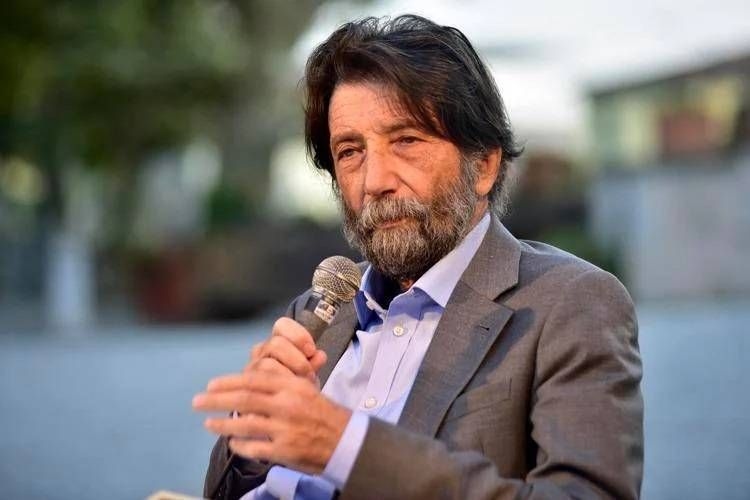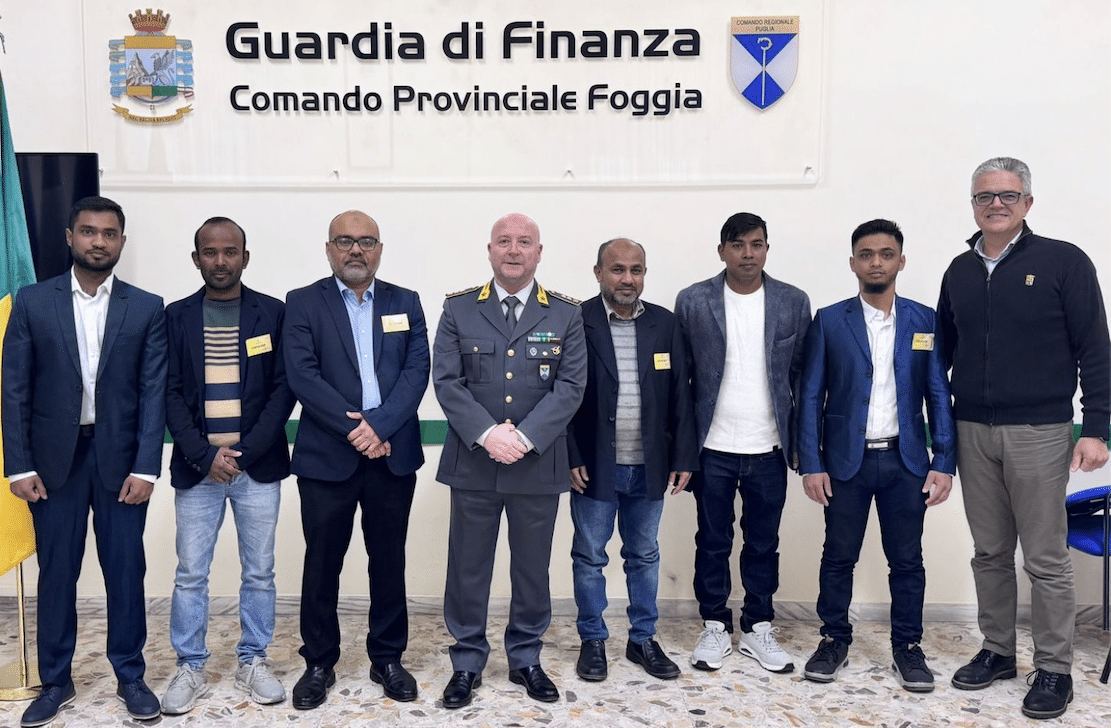'The Death of Jus Belli': Cacciari Raises the Alarm at the Biennale

"Nothing goes back to the way it was when you've put to death the fundamental principles of your culture." With this sentence, pronounced with a grave and lucid tone, Massimo Cacciari spoke this evening at the Venice Biennale in one of his most stark and prophetic lectures, "The Death of Jus Belli. Wars and Peace." Introduced by the president of the Venice Biennale, Pietrangelo Buttafuoco, who presented this new event of the Biennale della Parola, and with a greeting from the Patriarch of Venice, Monsignor Francesco Moraglia, the philosopher wove together the reflections of Immanuel Kant ("For Perpetual Peace") and Ernst Jünger ("Peace - A Word to the Youth of Europe and the Youth of the World") in a speech that was at once a political analysis, a moral diagnosis, and a civic appeal.
Cacciari's thesis is clear: today's war has erased every distinction between military and civilian, between lawful and unlawful, between war and extermination. "There is no longer any jus in bello. Where the military is, there is the civilian population. And together they are the enemy. It is an absolute war, a war of extermination," Cacciari said.
The Venetian philosopher has denounced a radical transformation of the conflict, marking a historic break with all precedents. While in the past even the most ferocious wars recognized, at least formally, limits and rules, today—Cacciari argues—that fragile bulwark has collapsed entirely. We no longer fight against armies, but against entire peoples; not against political adversaries, but against their very existence. Hence the fundamental question: what happens to international law, the "right to peace," when war becomes absolute?
For Cacciari, Europe is losing its legal and moral roots, deluding itself that everything can go back to how it was once "the enemy has been eliminated." But in doing so, he warns, "not only the law, but European civilization itself is collapsing."
The final appeal is entrusted to the new generations. It will be up to them, Cacciari said, to attempt to rebuild a human, social, and cultural fabric capable of reestablishing international law. "It seems an almost impossible task, but it is a necessary one. Generations present and past have failed: only a ruthless diagnosis can restore hope."
And that hope, the philosopher admits, is not of this time: "Hope lies beyond today, beyond the most impervious mountains. But without it, without the awareness of what we have destroyed, no peace can be born." With "The Death of Jus Belli," Cacciari not only commented on the chronicle of contemporary wars—from Gaza to Ukraine—but questioned Europe's very conscience, its faith in law, in reason, in the distinction between humanity and barbarism. A warning that sounds like a sentence, but also like the last possible appeal: "start thinking about law again" before it's too late.
Opening the event, President Buttafuoco emphasized that the Venice Biennale must be a laboratory for free speech, a barrier to the removal of topics that are now almost "forbidden" in public debate, such as war and peace. Buttafuoco then nostalgically evoked the Catholic intellectual Giorgio La Pira and the Communist parliamentarian Pio La Torre, two symbolic figures of an Italy that knew how to unite faith and civic engagement, dialogue and conflict. "I remember the Italy of La Pira, who summoned enemies from around the world to Florence to talk about peace, and the Italy of Comiso, with Pio La Torre and millions of people mobilized. Today, such figures would be treated as public enemies, deprived of the right to speak."
A passage that sounds like a harsh criticism of the closed-off contemporary debate, where complexity and debate seem to have given way to simplification and intolerance. For this reason, Buttafuoco reaffirmed the Biennale's mission: to safeguard freedom of thought and defend the spoken word as a tool for knowledge, not propaganda. "The Biennale works for the spoken word," he said, "and we are proud of what we add up to every day in our work."
In a time marked by wars and global tensions, the Patriarch of Venice, Monsignor Francesco Moraglia, offered a profound reflection on the theme of peace and war before Cacciari's lecture, inviting us to look beyond politics and institutions to rediscover the spiritual and moral dimension of peace. Moraglia recalled how today's world is "dominated by expansionism and new technosciences applied even to the war industry." Faced with this scenario, the patriarch evoked the relevance of Kant's project outlined in the treatise "Perpetual Peace," in which the German philosopher envisioned the creation of an international legal body capable of ending conflicts through the force of law. But Moraglia's reflection did not stop at theory. "We can have the best laws and the best instruments, but without the pilot, the journey cannot be completed," he observed, alluding to the crisis of international organizations like the United Nations and the lack of political and moral will that prevents peace from taking root. In his speech, the Patriarch also recalled the concept of "structures of sin," those social realities and dynamics that perpetuate injustice and violence, often masking them with other names. War, he said, "is not always called war, but continues in other forms." The heart of Moraglia's message, however, is anthropological: peace is not born from laws, but from the human heart. Quoting Russian philosopher Nikolai Berdyaev, he recalled that "Christian truth presupposes freedom" and that evil is not defeated by the force of the state, but by an interior, spiritual victory. "The state can limit violence, but it cannot eradicate sin," he added. Moraglia concluded with a call for personal and collective responsibility: "Good is not the result of laws alone, but of the freedom that chooses good. We must begin again from humanity, from its complexity, from its wounds, and from its capacity for renewal." Only a humanity reconciled with itself – he added – will be able to find "the grace to live in truth and build authentic peace." (by Paolo Martini)
Adnkronos International (AKI)




